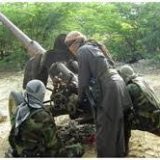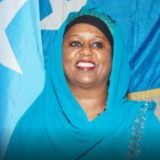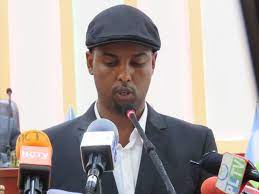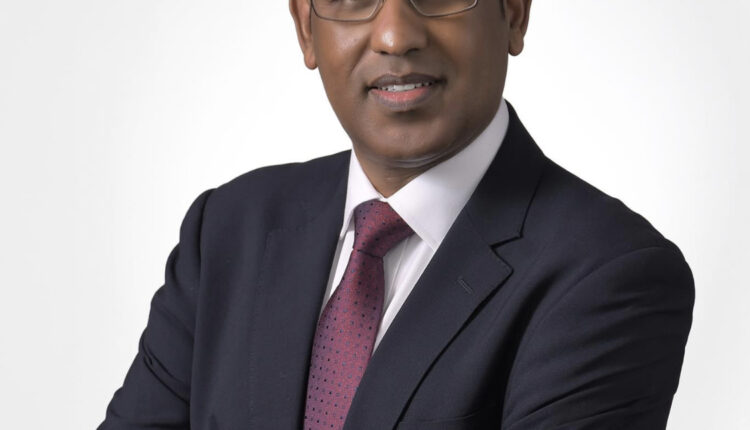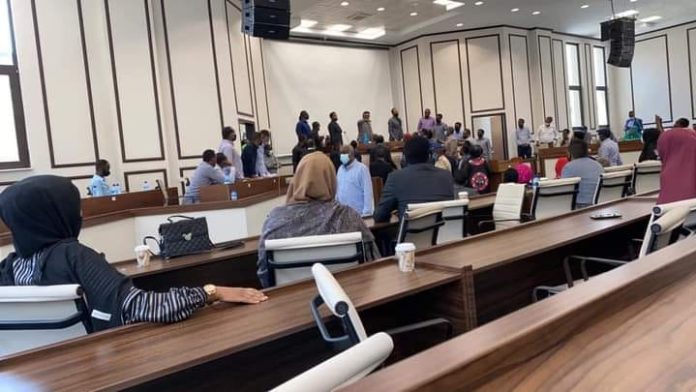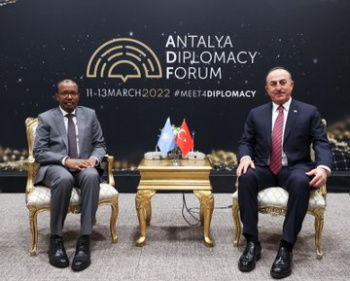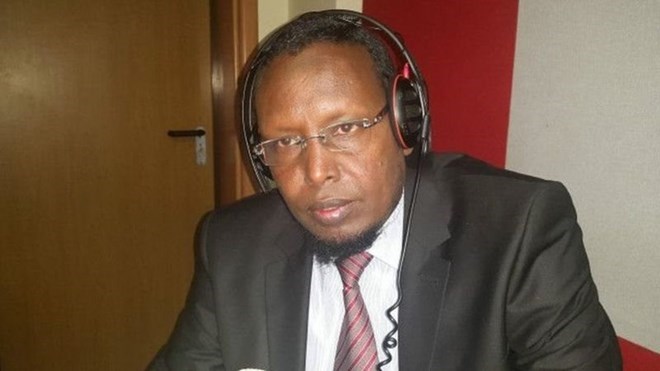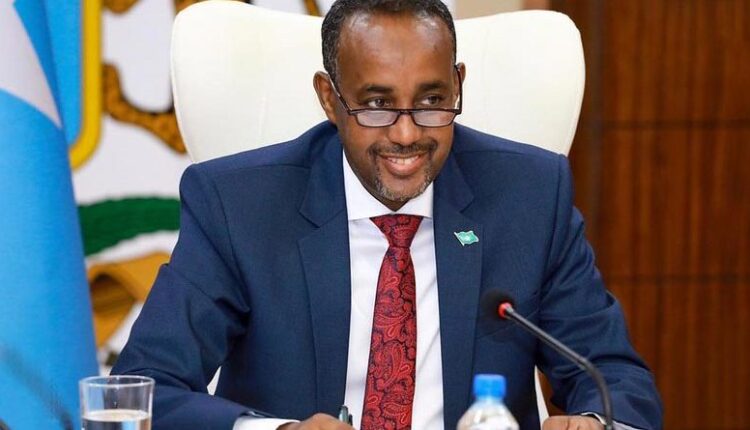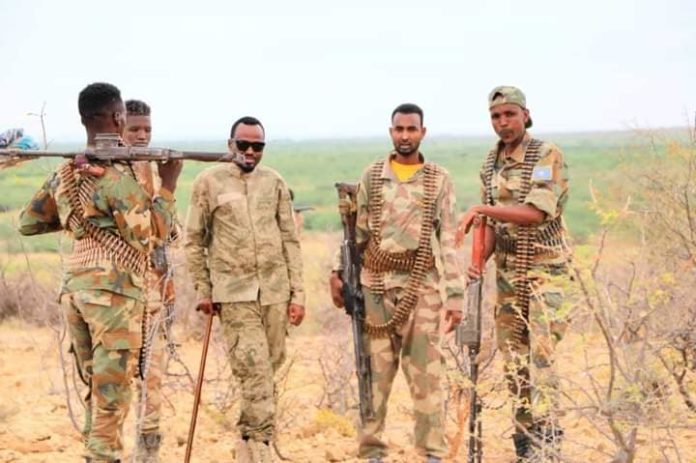Fadumo Jibril wins her second international Award on environment

Fadmo Jibril, co-ordinator of Resource Management Somali Network, has won her second her second UN environmental award ee Champions of earth today on environment , as she won before the the goldman prize .
Speakink a press conference she said that global effort to protect environment is needed.
This is her background by the East African Standard
Fatima Jama Jibril first left her country Somalia when she was 16. She accompanied her mother to join her father in America, where she pursued her high school education and joined business school.
After completing her studies she returned to Somalia in 1969 and briefly worked at the Treasury. But on getting married to Ali Abdulrahman, she returned to the US, where she bore and raised her five daughters.
She settled peacefully in America until the events following the 1991 ouster of President Siad Barre jolted her into action.
At the height of the civil war in Somalia, Jibril and her family watched on American television the horror and suffering of their people back home.
DETERMINED: Jibril hopes to put a stop to the environmental degradation taking place in her country.
“As I watched the unfolding chaos, I prayed that somebody would liberate Somalia,” she says.
America led an international peace keeping force into the country but the mission failed. Jibril realised that if things were to change, Somalis had to influence the change themselves.
She and other like minded Somalis in America formed Horn Relief to positively contribute to change in their motherland.
In 1993, Jibril and her husband volunteered to return to Somalia.
“While people were fleeing into exile, we were headed in the opposite direction,” she says.
Recently, when she was visiting Sanaag, a remote village in Somalia, she heard on radio that she had won this year’s Goldman Award, the highest grassroots environmental prize. The prize was awarded on April 2, in San Francisco, USA. At first she thought it was a hoax.
“I thought it was one of the many fraud plots in America,” she confesses.
She did not know anybody was paying attention to her environmental campaign in Somalia.
The annual Goldman Award, which includes a cash prize of US$125,000, is given to six people, one per continent.
The candidates are people who work within communities to protect the environment through seeking solutions to environmental problems and lobbying for positive environmental policies.
Among the past recipients of the award is Green Belt movement co-ordinator, Prof. Wangari Maathai.
Jibril received the award in recognition of her work with Horn Relief, which she founded to rehabilitate forests and marine resources in Somalia.
On returning to her homeland, Jibril was shocked at the level of environmental degradation. Growing up in a pastoral community, she spent her childhood roaming the countryside grasslands. She found a desert where the grasslands had existed.
She discovered that forests had been destroyed for charcoal that was sold in the Gulf.
“With no central government to administer national resources, people are cutting down every tree in sight,” she says.
“Some of the trees felled are 50 to 100 years old. Despite protests by environmentalists, Gulf nations continue to participate in the plunder of the country’s natural resources,” adds Jibril.
“If this trend continues, there will soon be no pasture for the Somali nomads,” she warns.
She says that fishing companies from the European Union are taking advantage of the situation to fish along the Somali coastline, destroying the coral reefs in the process.
To effect positive environmental change in Somalia, Horn Relief trains the community in the management of natural resources.
They are trained in rainfall management techniques, to utilise the draining into the Indian Ocean and the Red Sea.
“Youths are trained to build rock dams using pebbles, around the country.”
Horn Relief focuses on the youth whom they hope to engage in beneficial activities other than being fighters for the warlords.
“The environment is not just about trees and soil, it is holistic. This is why we are helping pastoral youths to organise themselves and work together,” she says.
“Somalia is basically a desert and inhabitants must learn to share water and other resources, otherwise our country will never know peace,” she adds.
Jibril hopes that by participating in the activities, the youth will learn to govern themselves in a respectful manner and the approach is bearing fruit.
In the village of Badan, two sub-clans are working together to build and rehabilitate village roads. Horn Relief also lobbies different organisation to support environmental development matters.
A year ago, the organisation convinced administrators in Puntland, one of the regional administrative areas in Somalia, to pass laws banning charcoal exports.
Jibril hopes to work with other regional administrators in the country to achieve the same.
Although the international community has not responded to the issues by Horn Relief, Jibril hopes their voice will be heard one day.
“There is no room for despair as life is about hope and if we lose it, we all die,” she says.
She is encouraged to continue her crusade.
Her determination was instilled in her by her mother who worked for 17 hours a day as a small scale trader while her husband was in England.
“My mother had little education but believed life was about making choices,” says Jibril. One of these choices was to send her to school in a community where education for girls was discouraged.
Jibril is also the co-ordinator of Resource Management Somali Network, an organisation that brings together Somali environmentalists.


